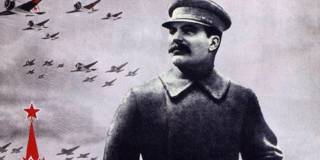Stalin’s War and Peace
In dealing with Vladimir Putin's Russia, the West has both underestimated and overestimated the country, often simultaneously. An examination of Soviet history – from World War II through the Nuremberg Trials – shows just how dangerous such miscalculations can be.

Jonathan Haslam, The Spectre of War: International Communism and the Origins of World War II, Princeton University Press, 2021.
Norman M. Naimark, Stalin and the Fate of Europe: The Postwar Struggle for Sovereignty, Harvard University Press, 2019.
Francine Hirsch, Soviet Judgment at Nuremberg: A New History of the International Military Tribunal after World War II, Oxford University Press, 2020.
MOSCOW – From the 2008 war in Georgia to the 2014 annexation of Crimea and the build-up of troops along Ukraine’s eastern and southern borders just this spring, Russia’s actions in recent years have been increasingly worrying. Could history – in particular, the behavior of Joseph Stalin’s Soviet Union after World War II – give Western leaders the insights they need to mitigate the threat?